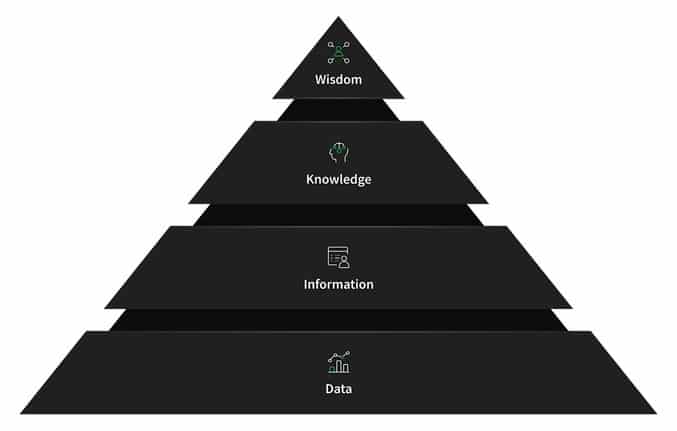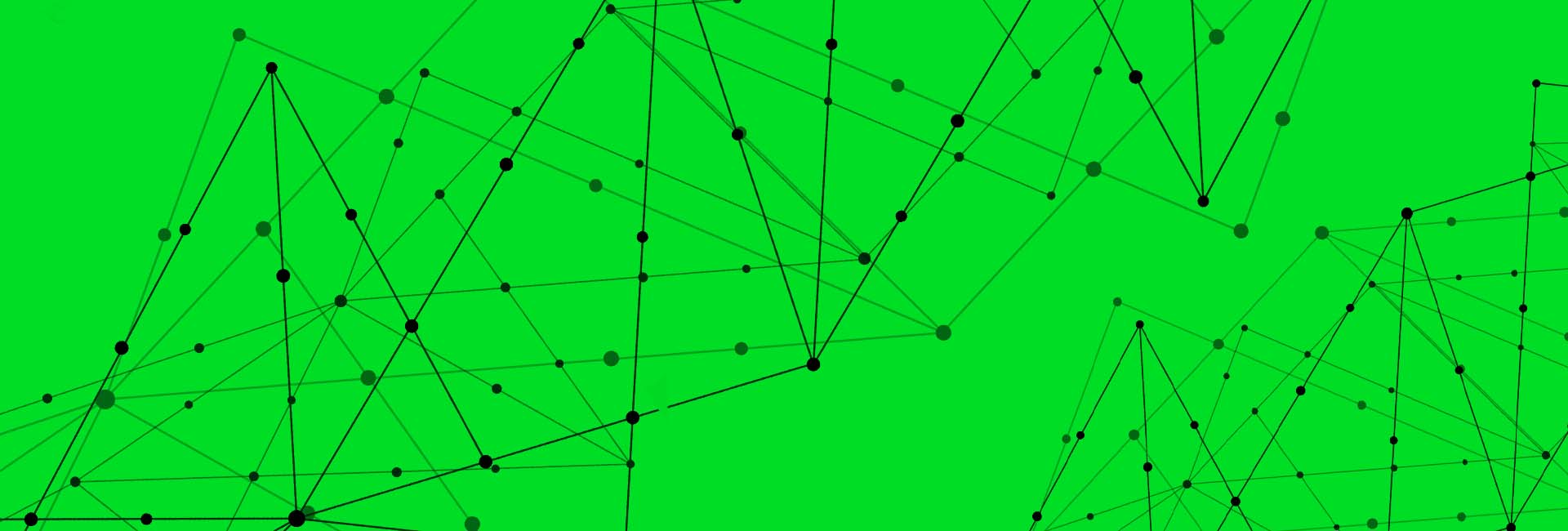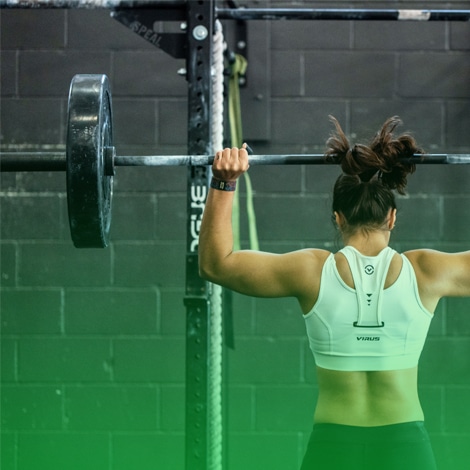By Markus Deutsch
Six months ago, we welcomed Major General (Retired) Jeff Sengelman, the former Head of Australian Special Forces, as the new Chairman of Fusion Sport. His strategic mindset is incredible, and I am lucky to have such a great mentor. In one of our first meetings, Jeff drew my attention to the DIKW pyramid model, and that has become a key strategic tool for me ever since. In this blog post, I’ll explain the DIKW model, how it applies to improving athlete and team outcomes, and how Smartabase (and Fusion Sport) help enable the progression from data to knowledge and wisdom to inform better and more timely decision-making.
In 1989, systems theorist and professor of organizational change, Russell Ackoff, published a paper in the Journal of Applied Systems Analysis titled “From Data to Wisdom.” In it, he demonstrated how students who are taken on a progression through four stages of learning – data, information, knowledge, and wisdom – become more self-aware, increase their effectiveness, and develop a greater ability to apply insights and understanding. Ackoff insisted that the more individuals (and, in his later writing, organizations) can emphasize the pursuit of wisdom, the better the results will be. As he wrote in an essay anthology, “An ounce of information is worth a pound of data. An ounce of knowledge is worth a pound of information. An ounce of understanding is worth a pound of knowledge.” Ackoff’s model has since been applied in academia, information technology, and healthcare, and is starting to gain greater traction in sports science.

MAKING DATA MORE ACCURATE
Ackoff visually represented the DIKW progression as a pyramid, starting with data at the bottom and then moving up through layers of information, knowledge, and at the very top, wisdom. As data is the foundation, it’s important to check how accurate and valid it is before attempting to turn it into actionable information. It is incredibly important to understand the quality of data that an organization is collecting. For example, there are a lot of wearables out there and studies conducted by branches of the US military and others have shown that the accuracy and validity varies considerably between devices. This is where an experienced vendor like Fusion Sport can be useful, as they have experience with helping organizations select the best devices for their data collection needs and then integrating these into a central repository.
Let’s say that an athlete’s sleep score is down by 10 percent. This data won’t become useful information if the sleep tracker has a plus-minus of 15 or 20 percent. It’s important to know such things up front so that you can normalize the data. Another mistake I often see is the collection of excessive data points and sets. A lot of teams go way too hard at the bottom end of the DIKW pyramid and don’t have a real strategy for the top of it, so a lot of their data and information gets wasted and is never turned into actionable knowledge and wisdom.
GAINING INSIGHT FROM INFORMATION
To turn raw data – which is just numbers and symbols – into useful information, it’s also key to know what to compare it to. When I first started Fusion Sport and was still building athlete management solutions for clients, one coach wanted to take a player’s heart rate variability (HRV) and compare it to every other player on the team. This was a mistake because each person’s HRV is unique to them. In order to make an individual’s HRV all the way up the DIKW pyramid, it would be more effective to look at the number in comparison with the player’s own scores from last week, month, and at this point during the previous season. Then the coach and his colleagues could’ve started to draw some meaningful conclusions about whether the values were in the normal range and if not, what the causes of this were and how this player could make changes to their training and recovery if needed.
SEEKING KNOWLEDGE
To transmit information into knowledge, you need to put it into context, bringing together data from different sources, and start identifying trends. Highly specific data and information can be useful to a certain specialty like strength and conditioning or nutrition, but if it stays stuck in a silo without layering in the broader context from various other disciplines, it rarely becomes knowledge, which limits its usefulness.
Going back to our sleep score example, even if the data is accurate, we need to understand what factors are in play for the athlete at this moment in time. If they’re ill, injured, traveling a lot, or struggling with a mental health issue, then they could be under excess stress that is adversely affecting their sleep. If the expertise of several different experts can be brought together – which is made easier by a centralized, multidisciplinary platform such as Smartabase – the team can decide to reduce the training load until some of these external factors have been mitigated. This is an example of how information becomes knowledge and can inform decision-making.
WORKING TOWARD WISDOM
To get to the phase at the top of the pyramid – wisdom – you need to be able to take your knowledge about what has happened historically, use it to predict what is likely to happen, and then act to increase the likelihood of a positive outcome or reduce the negative impact of something. This phase is about domain experts coming together to use their experience, understanding, and instincts to identify patterns and tease out insights, which some people put as a fifth layer between knowledge and wisdom.
The previous stages are all about what happens, whereas wisdom is more concerned with why it occurs and then what can we do about it going forward. A lot of vendors are trying to position their AI tools as ways to increase wisdom, but at the time of writing, they’re more effective at lower stages of the pyramid. For now, the wisdom stage of the DIKW model is still very much a human thing. It’s founded on our ability to tell stories and share them with others to derive meaning as a community. Obtaining wisdom also requires the input of organizational knowledge that is taken out of the heads of experts and baked into processes and systems such as Smartabase (we’ll dive into this topic in a forthcoming article).
WORKING BACKWARD FROM WHY
Although data forms the base of the DIKW pyramid, teams often make the mistake of starting there. When this happens, the focus can become, “How much data can we collect?” In which case, you see an organization wanting to buy one of everything when it comes to data inputs. This allows them to gather a lot of data, which they then start trying to glean information from. But sometimes the sheer quantity and lack of direction prevents them from gaining the kind of meaningful insights or understanding on which the next two phases – knowledge and wisdom – depend.
It’s far more effective and intentional to begin at the top of the DIKW pyramid and then work your way down. A better question to begin with is, “What do we need to get wiser about?” or, in a nod to Start with Why (Simon Sinek’s bestselling book), “Why do we want to gather performance data?” From there, you can start to identify your knowledge gaps, which in turn leads to the kind of information you’ll need to obtain. Once this is determined, then you can consider what types of data it will be necessary to gather, and which devices can help you do so. Such a logical progression will help your organization maximize the value of the DIKW framework and make it more likely that you’ll progress all the way to knowledge and wisdom, rather than getting stuck with data and information that is difficult to apply.
Any team looking to implement the DIKW model should also ensure that people are the primary focus. It’s easy to get caught up in the numbers and the flashy technology that collects them, and then to fixate on models and reports. In this way, the sports science division can become its own island that’s only looking at data and information through a single lens without the buy-in of athletes and coaches. If young data scientists come in and create a stigma about a so-called “coach-led approach,” they could go off on their own, try to figure out what the data and information really means, and then hope to pull the coach along with them.
Doing so excludes the experience, knowledge, and wisdom of the coaching staff, whose job it is to actually guide the team on a day-to-day basis. This can create an unbridgeable divide between the information and knowledge levels of the DIKW pyramid and mean that insights are limited because they’re siloed and there’s an “us and them” mentality between departments. Whereas if you’re starting with why and the goal of becoming wiser, there’s clear communication from the start, and you follow an integrated, multidisciplinary approach, your team can progress all the way to knowledge and wisdom. A performance management platform like Smartabase can help by ensuring that high-quality data is collected, context is applied to turn it into valuable information, expertise comes into play to obtain knowledge, and understanding and insights are gleaned to make wise decisions.
Over the past year, our team has helped many of our leading clients in sports and the military get greater value from their human performance initiatives using the DIKW pyramid. As part of this work, we have developed a Human Performance Maturity Model that helps organizations understand where they need to focus their attention to maximize results and ensure that data and information become actionable knowledge and wisdom. If you would like one of our experienced team members to take you through this model and help apply it within your organization, please contact us today. We’d welcome the chance to serve you.








